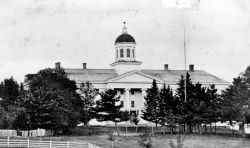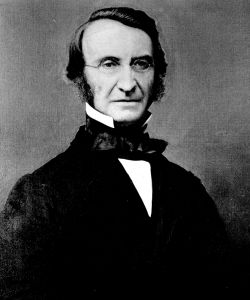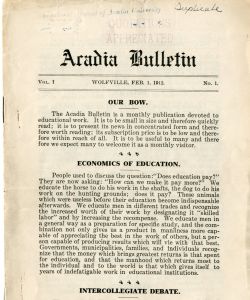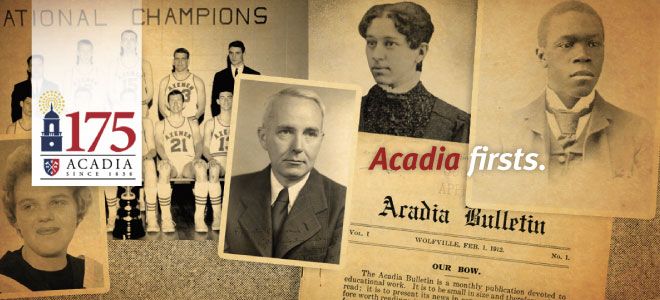
Acadia Firsts
A small school in Nova Scotia can do big things. Here are a few examples of Acadia's "famous firsts," or at least, "firsts for us."
First Female Graduate
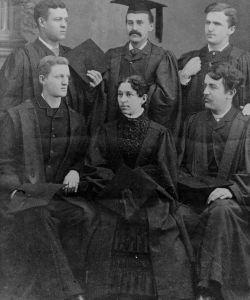
Clara Belle Marshall, from Mount Hanley, Nova Scotia, became the first woman to graduate from Acadia University in 1884.
First African Canadian Graduate
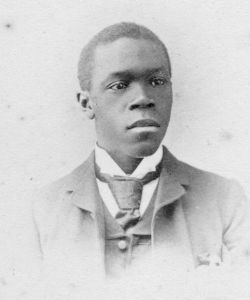
Acadia student-athlete Edwin Borden graduated from Acadia in 1892, and again with a Master’s degree in 1896, after which he went on to earn his Doctorate. He was Acadia’s first graduate of African descent, and was also a member of Acadia’s varsity baseball team. Borden is presumed to be among the first athletes of African descent at any Canadian university.
First Co-ed Production
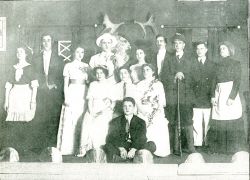
In 1912, the Board of Governors allowed Acadia's first play with a mixed cast. Men and women first appeared together on the stage in A Scrap of Paper.
First Bookmobile
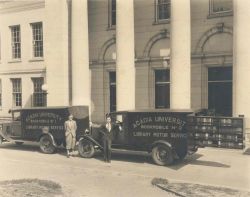
Acadia is credited with creating the first travelling library in the Maritimes. In the late 1920s, students from the manual training program at Acadia modified a truck to deliver books to communities throughout the Valley. According to Rural Library Service in Nova Scotia, “In the summers of 1930 and 1931 Acadia University operated two bookmobiles - one in NS and the other in NB and PEI. Each carried 1,500 books and stopped at 80 to 90 stations eight times during a summer. Because of the bad road conditions, service in winter was provided by mail. The cost was $1.50 per year.”
“This may be,” suggests University Archivist Pat Townsend, “the foundation of the Annapolis Valley Regional Library.” Because of the Depression, however, service ceased in 1931.
First Female ASU President
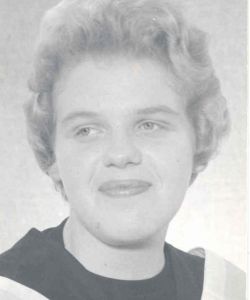
First woman president of the Acadia Students' Union, Dianne Elliott (1961-1962)
First Nobel Laureate
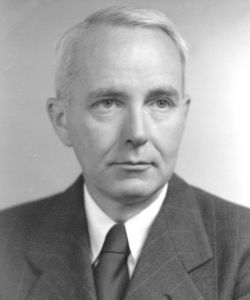
Charles Brenton Huggins (September 22, 1901 – January 12, 1997) was awarded the 1966 Nobel Prize for Physiology or Medicine for discovering that hormones could be used to control the spread of some cancers. This was the first discovery that showed that cancer could be controlled by chemicals. Huggins was born in Halifax, Nova Scotia, Canada. He graduated from Acadia University with a BA degree in 1920. He then went on to study at Harvard University and received his MD degree in 1924.
First Smithsonian Award

In 1996, Acadia University pioneered the use of mobile computing technology in a post-secondary educational environment.
This academic initiative, named the Acadia Advantage, integrated the use of notebook computers into the undergraduate curriculum and featured innovations in teaching. The initiative went beyond leasing notebook computers to students during the academic year, and included training, user support and the use of course-specific applications at Acadia that arguably revolutionized learning at the Wolfville, N.S. campus and beyond.
Because of its pioneering efforts, Acadia is a laureate of Washington’s Smithsonian Institution and a part of the permanent research collection of the National Museum of American History. It is the only Canadian university selected for inclusion in the Education and Academia category of the Computerworld Smithsonian Award.

